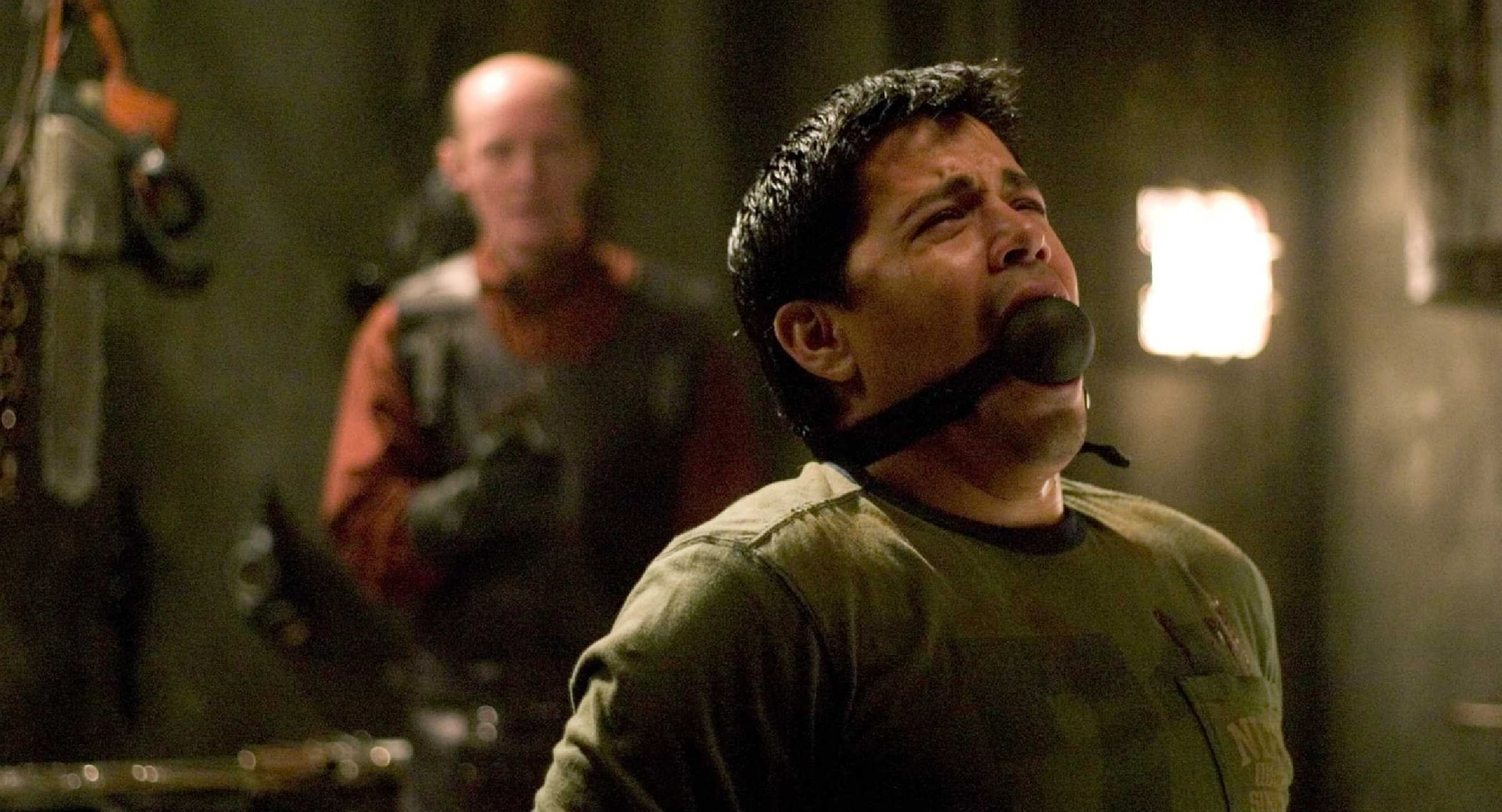Hostel – Film Review
Published July 22, 2023

Best friends Josh and Paxton decide to spend the summer after college graduation on an all-out backpacking trip across Europe. While stopping in Amsterdam to indulge their tastes for drugs and sex, they meet Oli, a like-minded traveler from Iceland. When the three bachelors set off to investigate enticing rumors of a Slovakian hostel in a city populated by lusty women, they find themselves drawn unwittingly into a deadly game.
Hostel, directed by Eli Roth, is a film that falls squarely into the horror genre, aiming to instill fear and discomfort into its audience through a grisly tale of sadism and torture. While it gained significant attention upon its release for its shock value and gruesome scenes, the film ultimately struggles to transcend the trappings of its genre, leaving viewers with a mixed and unsettling experience.
The plot follows three young backpackers – Paxton (Jay Hernandez), Josh (Derek Richardson), and Oli (Eythor Gudjonsson) – as they embark on a European adventure with the aim of indulging in wild parties and sexual escapades. Their journey leads them to a Slovakian hostel, an apparently hedonistic paradise filled with alluring women and debauchery. However, what seems like a heaven on earth quickly turns into a nightmarish hell when the travelers find themselves abducted and trapped in a secret facility that caters to wealthy sadists seeking to torture and kill human prey.
One of the most significant strengths of Hostel is its effective portrayal of a tense and ominous atmosphere. Eli Roth succeeds in creating a sense of dread that hangs over every frame, permeating even the seemingly innocent moments of the backpackers’ European journey. The anticipation of horror is built steadily through a series of chilling encounters with eerie characters, including the hostel’s unsettling manager (Jan Vlasák) and the mysterious local, Natalya (Barbara Nedeljakova). Roth’s keen eye for cinematography and a haunting musical score further contribute to the film’s unnerving ambiance, leaving the audience perpetually on edge.
The film’s violence and gore, which are its defining features, will undoubtedly polarize audiences. On one hand, Hostel can be commended for pushing the boundaries of the horror genre, unflinchingly delving into the darkest corners of human cruelty. The graphic scenes of torture and mutilation are expertly executed, relying on practical effects that heighten the realism, making it hard to look away. This commitment to delivering brutal and shocking imagery is undoubtedly successful in achieving its intended impact, as the film’s reputation as one of the most disturbing horror films of its time attests.
However, while the shock factor of Hostel initially captivates, it also becomes its downfall. The relentless focus on violence and gore overshadows any semblance of a compelling narrative or character development. The protagonists, Paxton, Josh, and Oli, remain underdeveloped, and their backstories are barely touched upon, making it challenging for the audience to emotionally invest in their plight. This lack of depth in the characters hampers any sense of empathy or connection, leaving the audience indifferent to their fates.
Moreover, Hostel struggles with pacing issues. The first act of the film builds up the suspense effectively, but as the story transitions to the titular hostel and its horrors, the pacing falters. The film descends into an extended sequence of relentless torture scenes, which, while powerful in their shock value, grow monotonous and tiresome over time. The narrative lacks variation, relying heavily on a formulaic structure of capture, torture, escape (or attempted escape), and repeat. This predictability detracts from the film’s ability to maintain a gripping hold on the audience’s attention.
Another significant drawback of Hostel lies in its questionable portrayal of certain cultures and regions. While the film’s setting in Eastern Europe serves to heighten its air of foreign menace, it occasionally ventures into the realm of stereotyping and xenophobia. The portrayal of the Slovakian characters as sadistic and depraved, along with the imagery of a poverty-stricken, backward society, may perpetuate harmful stereotypes. Though the film’s intention might be to create an exotic backdrop for its horrors, it ends up treading on thin ice, bordering on offensive representations.
While it certainly does have a ton of shockingly great moments, Hostel suffers tremendously from pacing issues and a lack of true grit and tension.
